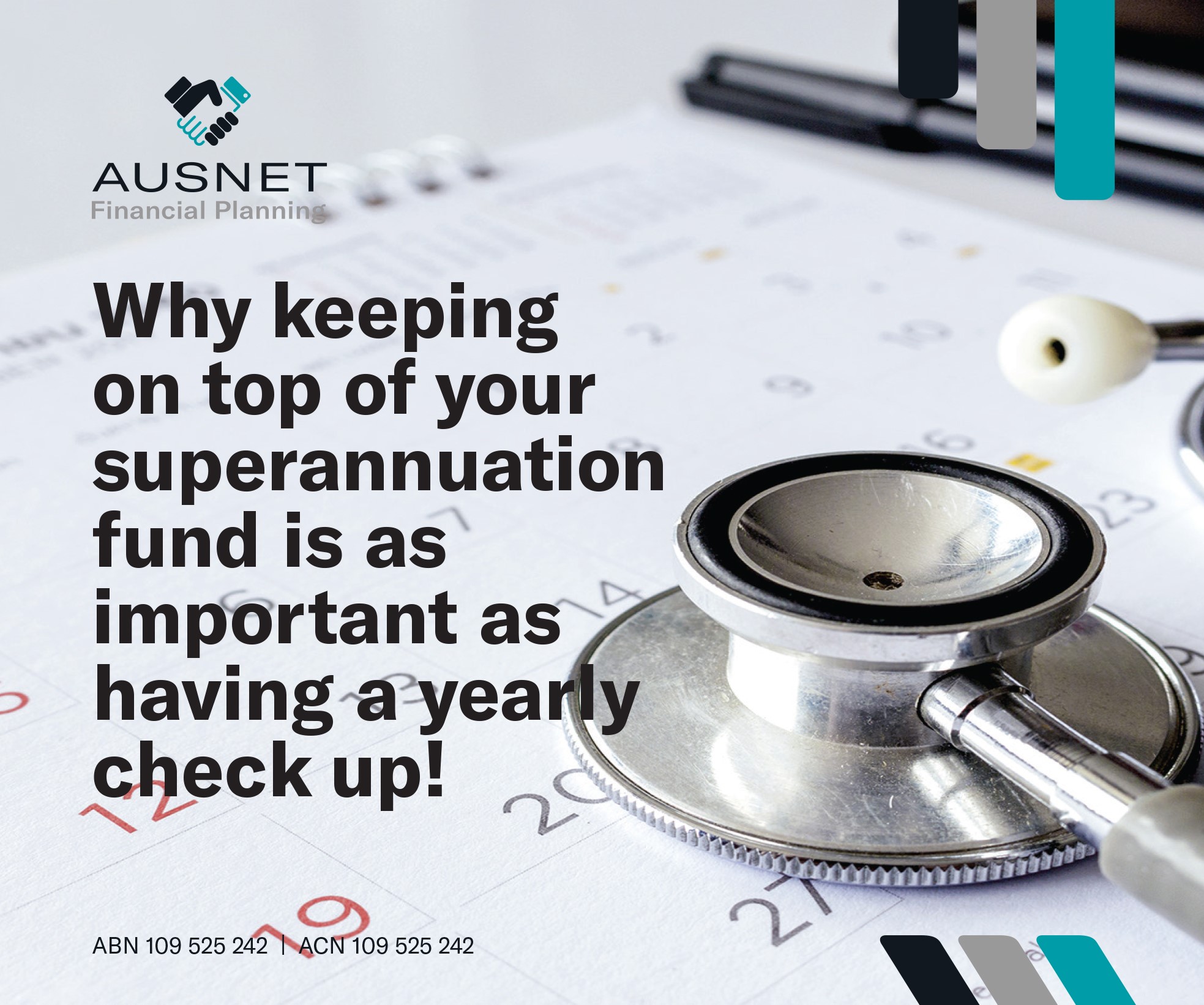Why keeping on top of your superannuation fund is as important as having a yearly check up!
Super tends to be one of those items that a lot of us set and forget. It’s easy to lose track of the long term goal which is to fund your retirement.
We asked our resident expert in everything Superannuation Miral Thakker from Ausnet Financial Planning to give us some tips on how to look after our super.
For Australians with superannuation accounts, the many super changes that took effect from 1 July 2017, may have created general uncertainty about the future of your super benefit, and perhaps even stress about your retirement plans. “Now is a great time to look at your superannuation and ensure that it has everything you need to retire comfortably”, says Miral.
Here are some reasons to be proactive about your superannuation^:
- You might live to be 100 so your money needs to last
- The cost of living will increase over time
- The age pension alone will not be enough for a comfortable lifestyle
- Super gets special tax treatment
- Low income earners may be eligible for bonus government contributions
“Maximise super for retirement by starting early” says Miral. By looking at your superannuation fund regularly and keeping in touch with your Financial Planner to stay on top of changes will ensure that you are ahead of the game.
“Before we start to look at where to place your nest egg there are a number of considerations we undertake”, says Miral.
Do you have multiple accounts?
The benefits of putting your entire super into one account include^:
- Saving costs by paying only one set of fees
- Reducing your paperwork
- Making it easier to keep track of your super
Where are you at in life?
Miral undertakes a number of considerations when reviewing a client’s super. He considers:
- Your age
- Your comfort with risk
- Retirement goals
- How long before you will be able to access your funds
Do you have the right investment strategy?
One of the starting points we look at in a super review is to see how your monies are invested in your fund. Super funds invest your contributions to grow your nest egg and depending on the risk and investment strategy, this could affect how big that egg is in the nest.
“It is important to look at the funds fees and performance over time. As these two factors can greatly impact your nest egg”, says Miral.
Many of our clients have their insurances in their super. However, a lot of polices may not meet the specific needs of the client.
“Most life/Death policies which is a default policy within Super will NOT be enough (the amount of cover held). The policies will more than likely expire once you retire. Fine print in the definitions of default policies especially with industry super funds state that they will not cover any pre-existing conditions, that in return leaves you (the client) and your loved ones exposed without even realising”, says Miral.
The TPD (total and permanent definition) within Super funds is an ANY occupation. What this means that in the event that the person insured was deemed as total and permanently disabled, and unable to work in their specialised occupation, and if they can re skill themselves to do something else, the TPD claim will NOT get paid. PLUS in order for any super insurances to be paid out, you need to meet the condition of release based on the SIS act. The trustee of the super fund will determine if you meet the condition of release and may or may not pay.
The other TPD definition is an OWN occupation. In simple terms, if you cannot perform your specialised duties in your OWN occupation, lump sum benefit WILL get paid. However this policy cannot be held within super as it does not satisfy the condition of release.
“Income Protection/Salary continuance policies within super, in most cases will have a benefit period of 2 years. So in the event that you were unable to work ever again, the max you will get paid is for 2 years,” says Miral.
“Some super funds are notorious and very cagey about their definition of insurances. E.g. A TPD definition from one of the industry super funds as it reads word to word.
You will be considered totally and permanently disabled if:
- Solely because if your illness or injury you haven’t been able to work in any job for at least 3 months in a row since you became ill or injured, and
- You are being treated by and following the advice if a medical practitioner for your illness or injury, and
- At the end of 3 months in a row, your injury or illness means that you’re incapable of ever working in any job that you are suited to based on your previous education, training or experience, or any job that you may reasonably become suited to with further education, training or experience.”, Miral explains.
Did you know that super contributions can reduce your taxable income? “Super is the best and effective tax saving haven and investment earnings in super are taxed only at 15%”, says Miral.
Think your policy could use a review?
Contact Miral on (number) or email miral@ausnetfinancialplanning.com.au today for a no obligation superannuation review.
Stay tuned for our next piece of advice from Miral on his top tips on how to boost your super.
^ https://www.moneysmart.gov.au



